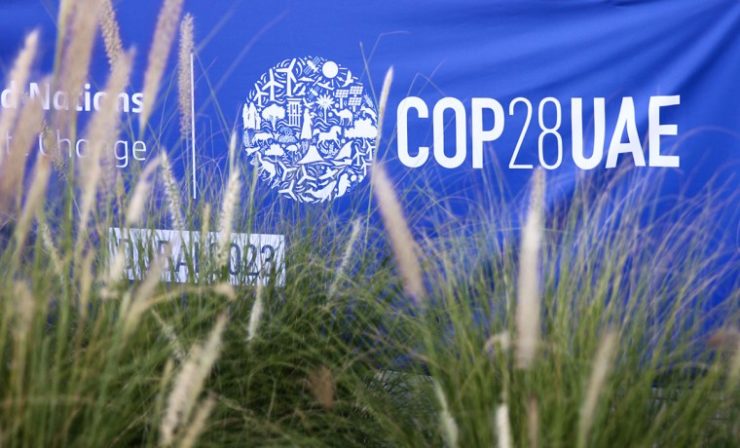
Climate Action, Hypocrisy, and Doubts
Recently, the 28th edition of the Conference of the Parties (COP28) to the United Nations Climate Conference was held in Dubai, United Arab Emirates, with more than70,000 delegates from nearly 200 countries in attendance. Despite its significant scale and global representation, concerns regarding the effectiveness of COP conferences in addressing climate change persist.
COP conferences have been held annually since 1995, with the overarching goal of preventing dangerous human interference with the climate system. The decision-making body, the Conference of the Parties, operates under the Framework Convention on Climate Change (FCCC). Over the years, these conferences have seen a surge in attendance, with COP28 reaching an unprecedented scale of 70,000 delegates. However, a fundamental paradox emerges as the attendees, including influential figures like Pope Francis, King Charles III, Bill Gates, and John Kerry, advocate for decarbonization while relying on hydrocarbon fuels for their travel and daily necessities. The incongruity is heightened by the fact that developing nations, which attend COP conferences seeking wealth transfers, heavily depend on coal, oil, and natural gas to improve their standard of living.
The push for ending hydrocarbon fuel usage, particularly from figures like Fatih Birol, the Executive Director of the International Energy Agency, resonates throughout the conference. Paradoxically, most attendees possess items such as cell phones, clothing, and synthetic fibers derived from hydrocarbons. The irony extends to the food they consume, produced using synthetic nitrogen fertilizer created from natural gas or coal fuels. These contradictions underscore the complex reality of hydrocarbons driving modern society.
Developing nations, often vocal proponents of world decarbonization at COP conferences, simultaneously plan over 1,000 coal-fired power plants, emphasizing their reliance on traditional energy sources. The conference becomes a stage for developing nations to demand wealth transfers, exemplified by India’s $1 trillion annual request from wealthier countries, illustrating the economic complexities entwined with climate discussions.
The COP conferences are not immune to accusations of hypocrisy. Figures like John Kerry, known for emitting significant CO2 through private jet flights, emphasize the importance of their work over personal emission reduction. Similarly, Bill Gates, a billionaire climate advocate, owns a mansion with substantial energy consumption, casting doubt on the sincerity of climate advocates demanding societal emissions reductions they fail to observe personally.
A glaring reality emerges when examining the impact of the past 27 COP conferences on climate change. Data from the National Oceanic and Atmospheric Administration reveals a steady rise in atmospheric carbon dioxide concentrations, indicating a lack of significant climate change mitigation. Even the global decline in industrial CO2 emissions during the COVID-19 crisis in 2020 failed to manifest in a detectable reduction in atmospheric CO2.
Energy consumption trends further highlight the futility of COP conferences, with world energy consumption tripling since 1965. Despite substantial investments in renewable energy, coal, oil, and natural gas still constitute 81 percent of global energy consumption, mirroring the percentages from 1999. COP conferences, therefore, seem increasingly characterized by rising attendance rather than tangible impact.
In recent years, doubts regarding the credibility of the event have intensified. The CEO of the United Arab Emirates National Oil Company, Sultan Al Jaber, appointed as the COP28 president, faces allegations of leveraging the summit for global oil and gas deals. Leaked documents suggest discussions with 15 countries regarding potential fossil fuel projects, prompting accusations of conflicts of interest and compromising the impartiality expected from COP presidents. These revelations raise questions about the integrity of COP28, as concerns about conflicts of interest and potential emissions increases from side deals loom large.
The UAE’s role as the host country introduces a paradoxical dynamic. While Al Jaber reassures participants of the UAE’s commitment to a successful COP28, leaked documents unveil plans for oil and gas deals during the event. Critics argue that using the presidency role to push private deals, especially related to fossil fuel expansion, is inappropriate and compromises the conference’s objectives. The credibility of COP28 is further tested by the apparent intertwining of Al Jaber’s roles as the head of ADNOC, the state oil and gas company, and the COP28 president. The leaked documents expose discussions about potential deals with China, Canada, Australia, Mozambique, and Brazil, creating a conflict between the UAE’s oil interests and its commitment to addressing climate change.
The potential loss of trust in the COP28 team, as expressed by a former COP president, could impede progress on crucial climate issues. The success of the UAE’s leadership will be measured by the outcomes achieved at the summit, despite the serious allegations. The integrity of COP28 is at stake, and if the summit fails to achieve expected outcomes, critics may attribute it to the controversies, further eroding the event’s credibility. Amidst these controversies, the urgency of reaching a legally binding agreement is emphasized by various climate activists. The mixed signals from major governments, including the United States, and the UK, add complexity to the summit’s prospects. Many climate activists highlight the need for transparency, integrity, and a commitment to phasing out fossil fuels to keep the world on track for the essential 1.5-degree target.
The conference stands at a crossroads, navigating through controversies, doubts, and the urgency of meaningful climate action. The paradoxes embedded in the conference’s history, the host country’s practices, and the actions of influential figures underscore the challenges in translating rhetoric into tangible change.
Taut Bataut – is a researcher and writer that publishes on South Asian geopolitics, exclusively for the online magazine “New Eastern Outlook”.
